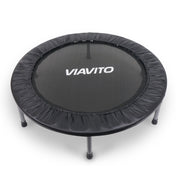
The mental side of tennis is as important as hitting the ball over the net. In fact to be the best you have to be able to excel in all 4 parts of the game, the Physical, Technical, Tactical and Mental (see Sweatband Coach, Tristan’s take on this for squash)
So what does being mentally tough really mean and how would I describe it.
When you are mentally tough it enables you to overcome the following key points:
- Dealing with adversity
- Problem solving
- Keeping focused
- Dealing with nerves
What are the key tools to becoming a mentally tough competitor?
Visualise – Before matches try and visualise how you see the points playing out, see yourself hitting winners and serving well but also consider what your opponent might be doing, this will get you ready for anything that might happen.
Show good body language and feed yourself positive self talk– This keeps you positive and gives you good energy, Rafael Nadal is the best at this often jumping in the coin toss and fist pumping when winning key points. A lot of Junior players are very negative on court when they lose points, this hinders them from playing well, showing good body language can also be very intimidating to your opponent.
Have a game plan – Know your opponents strengths and weaknesses and build a plan on how to exploit those weaknesses. Know what you do well, have an idea of where you are serving and work out what your plan is when stepping up to the line, this is a great way to keep you focused. If you are fortunate to have a coach it would be worth discussing this with them.
Problem solve – If in the heat of the battle Plan A isn’t working are you able to realise this and change to a different game plan, the best players are able to adapt accordingly.
Adopt routines – This might include how many times you bounce the ball, or what you might say to yourself, some players go to the back of the court and towel down, Maria Sharapova in her prime would go to back of court and practice shadow swings. Adopting routines is a great way to focus the mind.
Acceptance – Instead of stressing it is best to just accept what has happened, it might be that you have missed an easy ball or your opponent is lucky, you can’t change what has happened, the best players are able to accept adversity and move on. When players are reluctant to accept they usually get angry and as a result lose focus and panic.
Run for every ball – It goes without saying that every time you step on the court you have to challenge yourself to chase every ball, don’t allow the ball to bounce twice, this is a great mindset to get into to keep you motivated during the match.
Relax – Don’t stress, do your best to relax, a lot of players concentrate on their breathing to help relax and keep their nerves under control.
Play one point at a time – Easier said than done but really try and concentrate on the next point only, try not to think too many points ahead, Serena Williams often talks about concentrating on one point at a time.
One of the best ways to practice these ideas is to compete more, be prepared to learn through playing matches and practice sets.
Below is a link of Roger Federer talking about the importance of body language:

